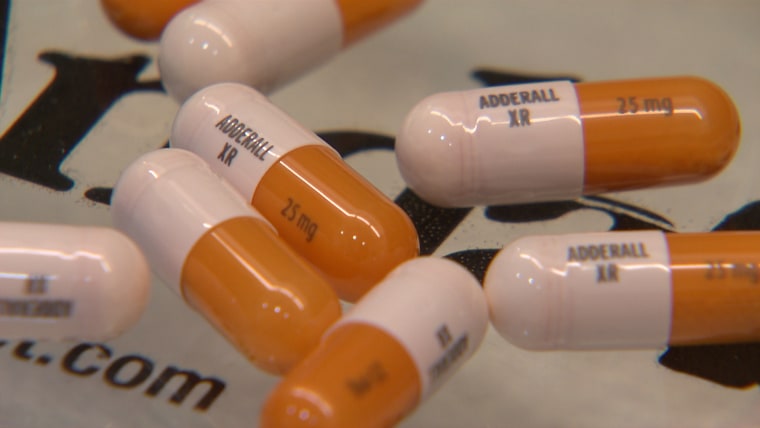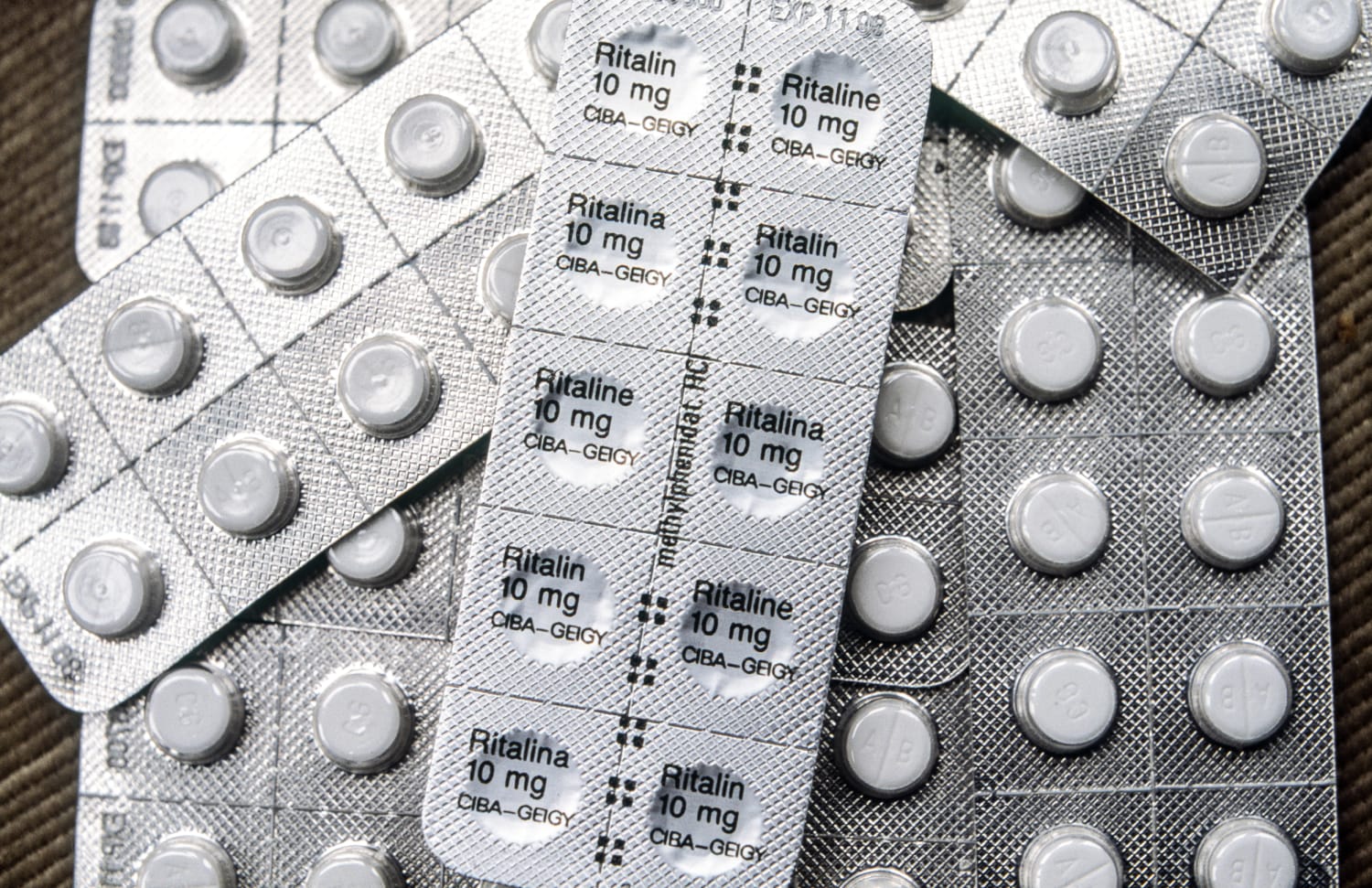A large number of U.S. adults are being prescribed drugs like amphetamines, which have a risk for misuse, along with medications for depression and anxiety, a new study has found.
The practice, the authors say, could lead to higher rates of misuse and addiction and cause unknown side effects.
The Drug Enforcement Administration classifies amphetamines and methylphenidate as Schedule II controlled substances, the same designation given to cocaine, OxyContin and fentanyl.
Those drugs, which stimulate the body’s nervous system, are prescribed for a variety of conditions, including attention-deficit/hyperactivity disorder, sleep disorders and nasal congestion, but are sometimes prescribed off-label to help treat disorders like depression and anxiety in combination with other medications. “Off-label” prescribing refers to medications prescribed for uses other than what they were approved for.
“We are concerned given the risks of these drugs,” said the study’s lead author, Thomas Moore, a researcher at the Center for Drug Safety and Effectiveness at Johns Hopkins University, noting that prescription stimulants are “highly potent” and that data on using them in combination with other psychiatric medications is limited. The research was published Monday in BMJ Open.
“These drugs have a high potential for physical and psychological dependence,” he said. The use of prescription stimulants in combination with other medications appears to be rising, he said, although the study did not compare use to previous years.
The study’s findings were based on insurance claims data from more than 9.1 million adults with private health insurance from Oct. 1, 2019, to Dec. 21, 2020.
Prescription stimulant use was defined as adults’ filling one or more stimulant prescriptions that contained amphetamines and methylphenidate, the active ingredient in Ritalin.
Researchers found that more than 276,000 adults were using Schedule II prescription stimulants. Among them, just under half — around 45% — were using the drugs alongside other psychiatric medications, including antidepressants, anti-anxiety drugs and opioids.
Some physicians may prescribe stimulants to treat the side effects of other psychiatric medications or to enhance them. That is sometimes called a “prescribing cascade,” Moore said.
“An antidepressant is prescribed for a patient and maybe one of the side effects is sedation, and so they add a stimulant, like amphetamines,” he said. “Or maybe the drug has fairly modest effects, and so they add an amphetamine, and they’ll get a little more kick out of it.”
Is depression linked to ADHD?
It’s common for conditions like depression to aggravate another mental disorder someone might have, said Dr. Robert Bassett, the associate medical director of the Poison Control Center at the Children’s Hospital of Philadelphia.
If one “has worsening or untreated depression, the depressive symptoms can make the ability to focus harder, leading to worsening symptoms of ADHD,” he said.
More females, at 52.6%, used both stimulants and other psychiatric medications compared to males, at 36.2%, according to the study.
In addition, young people — particularly those ages 19 to 34 — were more likely than older people to take combinations of medications.
Amphetamine products accounted for 86.4% of the stimulant prescriptions, while methylphenidate products accounted for 13.6% of prescriptions.
Dr. Scott Hadland, an addiction specialist at Mass General for Children in Boston who was not involved in the study, stressed “caution” when interpreting the study’s findings.
The study examined how common it is for people to receive prescription stimulants in addition to other psychiatric medications, but it did not examine whether people misused or were dependent on those medications, he said.
He also noted that prescription rates for stimulants like Adderall are rising in the U.S. in general, so it is more likely that someone would be taking one or more medications at the same time. A study published in 2021 found a 79% increase in prescription stimulant use among adults from 2013 to 2018.
“It’s not uncommon for people with ADHD to have another condition like depression,” he said.
Moore said he is concerned about the practice because stimulants alongside medications for conditions like depression and anxiety have not been thoroughly tested in clinical trials. When such prescriptions are used together, people could misuse them or experience unpleasant side effects.
“We have very little scientific information about whether this practice is safe and effective,” Moore said.
He said that although the study relies on commercial health insurance data, it may not represent the uninsured or people on government health programs, like Medicare and Medicaid.
Doctors should prescribe the lowest effective dose possible, Bassett said.
Hadland, of Mass General for Children, said doctors should make sure they are prescribing stimulants “appropriately” and are aware of all other medications patients may be receiving.
Follow NBC HEALTH on Twitter & Facebook.
Source: | This article originally belongs to Nbcnews.com



-7m4vz1.jpg)







